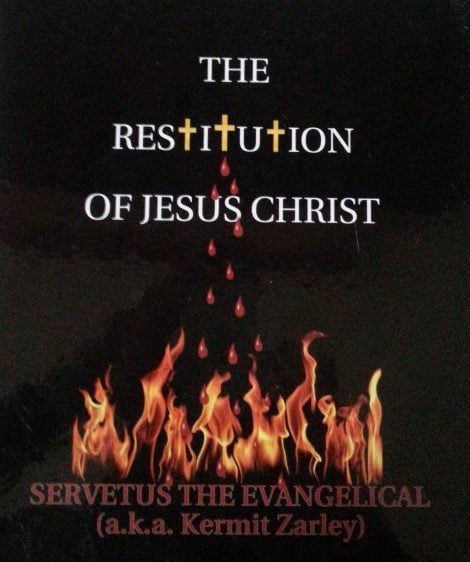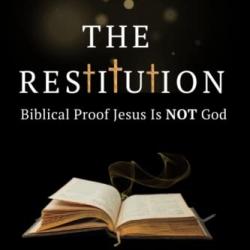 When I first meet a Christian, occasionally the first thing that person will ask me is, “You believe in the Trinity don’t you?” They never ask me, “You believe that Jesus arose from the dead, don’t you?” Why is this?
When I first meet a Christian, occasionally the first thing that person will ask me is, “You believe in the Trinity don’t you?” They never ask me, “You believe that Jesus arose from the dead, don’t you?” Why is this?
The book of Acts tells us mostly about the early Christians preaching the gospel, which means “good news.” That good news is that Jesus arose from the dead. The book of Acts tells us over twenty times what their evangelistic messages were. It was mostly that Jesus was the promised Messiah of Israel, he died for the sins of others, and God raised him from the dead. But there isn’t anything in those messages about God being a Trinity, that is, three co-equal and co-eternal persons: the Father, the Son, and the Holy Spirit. That is the Missing Link in the Bible.
Why do I say this? The Catholic Church decided at its First Ecumenical Council–held at Nicaea in present Turkey in 325 CE–that Jesus was “very God of very God.” This means that Jesus was just as much God as the Father is God. These 316 bishops, supposedly (two didn’t sign it), even drafted a creed, called the Nicene Creed, which says that. And the last third of this Creed repeatedly declares “anathema” (cursed to hell) upon all those who disagree with this axiom, that Jesus is “very God of very God.”
The Nicene Council never even discussed the constitution of the Holy Spirit. And, contrary to much teaching on this, there was no official church doctrine of the Trinity at that time or anytime before it. It was not until the 370s that the Three Cappadocians (three church fathers) began writing papers about the constitution of the Holy Spirit.
Then the Second Ecumenical Council–held at Calchedon in present Turkey in 381–made the doctrine of the Trinity official. It did so by amending the Nicene Creed and making it the Chalcedonian Creed. Yet the Church was careful not to include the word “trinity” (Gr. trias; L. trinitas) because that word was not in those documents the church generally held as sacred, which later became the New Testament. The Roman emperor thereupon declared that everyone must believe in the doctrine of the Trinity or be extricated from the empire.
When the Protestant Reformation came along, in the sixteenth century, those early Reformers accepted the Catholic doctrine of the Trinity without serious scrutiny of it. Yet the mantra of Protestantism was sola scriptura, a Latin expression meaning “only scripture.” Protestants meant by it that if any serious theological teaching is not in the Bible, it ought not to be believed. They differed in this from the Roman Catholic Church, which said “scripture plus tradition,” that is, the teaching of the Catholic Church. But regarding the doctrine of the Trinity, that is exactly what the Protestant Church did–it accepted a Catholic Church tradition that was not in the Bible.
So, no matter how hard you search the Bible, you will not find the word Trinity in there or any statement that comes anywhere close to saying God is three persons or God is three in one. Even many leading evangelical scholars now admit that the doctrine of the Trinity is not taught explicitly in the Bible. Rather, they claim it is a legitimate deduction from the Bible. Regardless, the doctrine of the Trinity is the Missing Link in the Bible because both the Protestant Church and the Catholic Church has made it so.
 (Kermit Zarley was a Trinitarian Christian for twenty-two years before reading himself out of it in the Bible. See his book about this subject, which is biblically in-depth, entitled The Restitution of Jesus Christ. It cites over 400 scholars. This 600-page printed book is available right now only at his website kermitzarley.com. To see a list of over 130 posts of two-three pages in length, which are mostly condensations of this book, at Kermit Zarley Blog click on Christology in the menu.)
(Kermit Zarley was a Trinitarian Christian for twenty-two years before reading himself out of it in the Bible. See his book about this subject, which is biblically in-depth, entitled The Restitution of Jesus Christ. It cites over 400 scholars. This 600-page printed book is available right now only at his website kermitzarley.com. To see a list of over 130 posts of two-three pages in length, which are mostly condensations of this book, at Kermit Zarley Blog click on Christology in the menu.)












